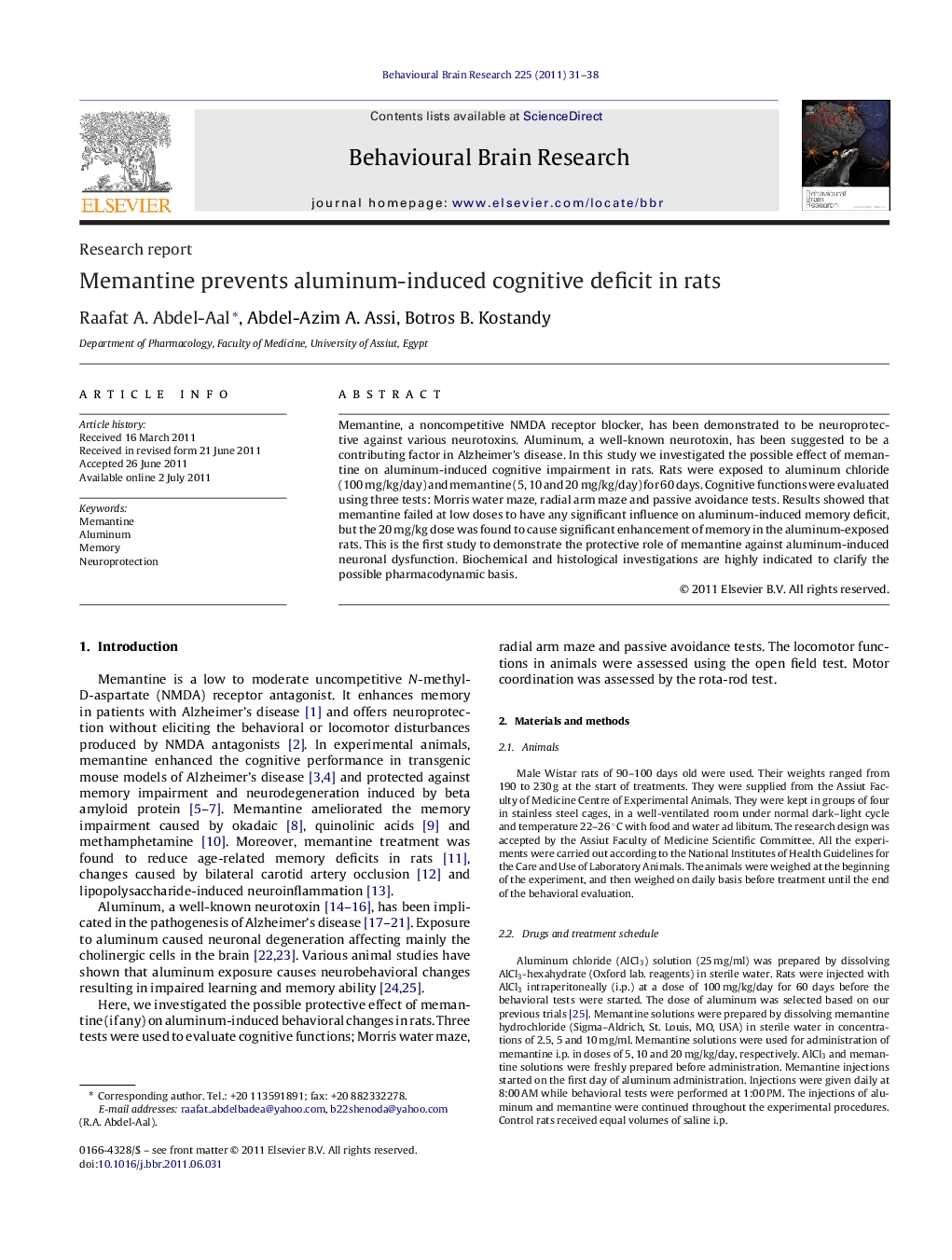| Article ID | Journal | Published Year | Pages | File Type |
|---|---|---|---|---|
| 4313285 | Behavioural Brain Research | 2011 | 8 Pages |
Memantine, a noncompetitive NMDA receptor blocker, has been demonstrated to be neuroprotective against various neurotoxins. Aluminum, a well-known neurotoxin, has been suggested to be a contributing factor in Alzheimer's disease. In this study we investigated the possible effect of memantine on aluminum-induced cognitive impairment in rats. Rats were exposed to aluminum chloride (100 mg/kg/day) and memantine (5, 10 and 20 mg/kg/day) for 60 days. Cognitive functions were evaluated using three tests: Morris water maze, radial arm maze and passive avoidance tests. Results showed that memantine failed at low doses to have any significant influence on aluminum-induced memory deficit, but the 20 mg/kg dose was found to cause significant enhancement of memory in the aluminum-exposed rats. This is the first study to demonstrate the protective role of memantine against aluminum-induced neuronal dysfunction. Biochemical and histological investigations are highly indicated to clarify the possible pharmacodynamic basis.
• Can memantine protect against aluminum-induced cognitive dysfunction in rats. • Tests to evaluate cognitive function: Morris water maze, radial arm maze and passive avoidance tests. • Memantine in the dose of 20 mg/kg/day (not 5 or 10 mg/kg/day) prevented the development of aluminum-induced cognitive dysfunction.
